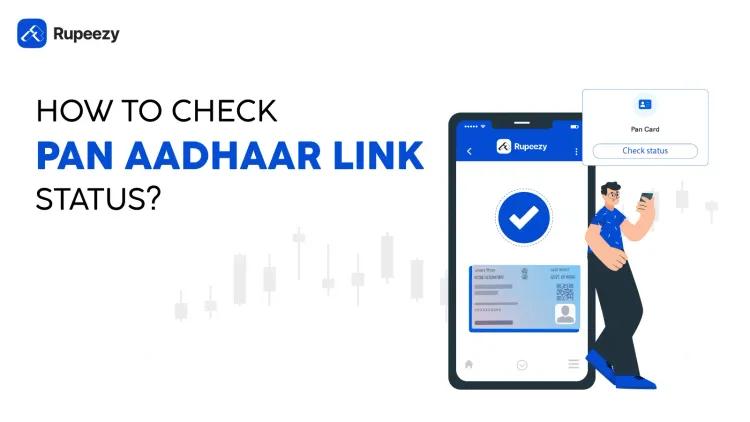List of the Best Private Banks in India 2026


00:00 / 00:00
Several private sector banks in India greatly assist in extending financial services to the country's people. These banks provide many amenities, such as a good interest rate on fixed deposits, easy-to-get loans, investment opportunities, and financial services.
From offering personalized banking services to introducing innovative digital banking solutions, private banks in India have become a popular choice for many.
If you’re looking for information on the best private bank in India or want to explore the largest private bank in India, you’re in the right place. This article will help you explore the options and determine which private bank in India meets your needs.
What are Private Banks?
Private banks in India are owned and run by private individuals or companies, not the government. These banks offer various services, such as great returns on savings accounts, affordable loans, investment options, and personalised financial solutions.
Private banks in India play an essential role in the country’s economy by introducing new ideas and creating competition in the financial sector. Over the years, private banks have helped improve banking in India, especially since the 1990s when the government relaxed regulations and allowed them to grow further.
Private Banks have brought in new methods of banking and, with it, new and advanced technologies like digital banking. This increases the ease of banking, especially for the technologically developed and middle-level income earners. Hence, these banks are on the top of digital banking and are changing the banking perspective in India.
Many choose private banks over public sector banks because of their personalised services and faster customer support. In addition, private banks offer a better overall banking experience with higher service levels.
Types of Private Banks
There are four types of private banks in India and each of those has a different role in the financial system. Let’s break them down:
1) Commercial Banks
These type of organisations provide working capital for investment, chequing and withdrawal account services, and overdrafts to the public and business people. A commercial bank can be used to perform other operations such as retailing of financial services and providing loans among others. They’re divided into three types:
Private sector banks: These banks belong to private individuals. Examples are HDFC Bank and ICICI Bank; most of the banking facilities render top customer services and have integrated online banking systems.
Regional rural banks: These banks operate mainly in the rural and the semi urban regions. They provide services that deal with the financing of small business and farmers.
Foreign banks: These are the global banks with operational bases in India but headed from outside the country’s territory. For instance, Citibank and Standard Chartered Bank are among the famous foreign banks of operation in India.
2) Small Finance Banks
Small finance banks are developed to assist the decrease in access to financing services in the nation. They engage in normal banking activities for communities that the commercial banking sector does not consider important to serve. Units like the small farmers, micro business units, and unorganized sectors. Now, if you belong to any of these three categories, then you can use small finance banks to either save your money, borrow money, or even take insurance
Examples include the AU Small Finance Bank and Ujjivan Small Finance Bank.
3) Payments Banks
Payment banks are a new project which has been initiated by the Reserve Bank of India. These banks exist with the objective to bring diverse individuals into the financial fold, often through non-cash channels. Payment banks are essentially like having a small savings account or an ATM through your smart phone for making payments on an item or transferring cash. Nonetheless, they do not offer loans, or credit card facilities for customers. Examples of these include Airtel Payments Bank and Paytm Payments Bank.
4) Cooperative Banks
Cooperative banks work on a collaborative model, which means they’re owned and operated by their customers. These banks raise money by selling shares to their members, and they reinvest the profit into the community.
They often offer lower interest rates on loans and can be a good option for those looking for personal loans or support for small businesses. Examples of cooperative banks in India include Saraswat Cooperative Bank and The Shamrao Vithal Co-op Bank.
Top 10 Private Banks in India by Market Capitalisation
The table below shows the top 10 private banks in India by market capitalisation:
Rank | Bank Name | Market Capitalisation (Rs Crores) | Headquarters | Year of Establishment |
1 | HDFC Bank | 13,24,822 | Mumbai | 1994 |
2 | ICICI Bank | 8,81,908 | Mumbai | 1994 |
3 | Kotak Mahindra Bank | 3,51,010 | Mumbai | 2003 |
4 | Axis Bank | 3,59,457 | Mumbai | 1993 |
5 | IndusInd Bank | 98,983 | Pune | 1994 |
6 | IDBI Bank | 83,727 | Mumbai | 1964 |
7 | Yes Bank | 62,756 | Mumbai | 2004 |
8 | IDFC First Bank | 49,806 | Mumbai | 2015 |
9 | AU Small Finance Bank | 48,501 | Jaipur | 1996 |
10 | Federal Bank | 46,216 | Kochi | 1931 |
Info of Private Banks in India 2026
1. HDFC Bank
It is one of India's foremost names among private sector banks and was floated in 1994. It is the best-performing bank in the country because of its wide reach and quality of services. HDFC Bank outtricks all the aspects of individual or organizational financing.
Notably, market capitalization indicates the competitiveness of the bank. Due to its inventions, HDFC Bank is one of the best institutions with a high customer base.
Number of branches: 8,919
Number of ATMs: 21,031
Services provided: Savings accounts, personal loans, home loans, credit cards
Number of customers: 93 million
2. ICICI Bank
ICICI is one of the largest private sector banks in India. It was founded in 1994, and like other private banks, it is a big bank. They have carved a niche market in the banking world as their expansion improved the Indian banking system by providing the public with various banking and financial services. ICICI Bank's brand of products is mainly centred on technology and its customers, adding value to the market capitalisation.
Number of branches: 5,275
Number of ATMs: 15,589
Services provided: Savings accounts, home loans, business loans
Number of customers: 28 million
3. Kotak Mahindra Bank
Kotak Mahindra Bank, which started in 2003, is now a progressing private sector bank in India since it has covered all the corners of customer-centric banking services. Cross-selling the complete range of bank products, Kotak Mahindra Bank is known more in society for its wealth and investments.
Number of branches: 1,948
Number of ATMs: 3,239
Services provided: Savings accounts, fixed deposits, personal loans
Number of customers: 51 million
4. Axis Bank
One of India's prominent private sector banks, Axis Bank, was founded in 1993. It is famous for its vast range of services and vast network of branches. Axis Bank caters to all personal and commercial segments, providing all-round services focusing on e-banking.
Number of branches: 5,100+
Number of ATMs: 16,026
Services provided: Savings accounts, personal loans, business loans
Number of customers: 22.6 million
5. IndusInd Bank
Established in the year 1964, it provides multiple securities and investment products and places the bank as being a strong where west meets east. IndusInd Bank features significant names in the list of private banks in India. Due to its retail and corporate banking services, it has become a behemoth in India’s banking sector.
Number of branches: 3,013
Number of ATMs: 2,988
Services provided: Savings accounts, personal loans, vehicle loans
Number of customers: 41 million
6. IDBI Bank
Originally commencing its business as a public sector bank, IDBI Bank today operates in the private sector and is a prominent Private Sector Bank in India. Founded in 1964, IDBI Bank provides various financial products and services, positioning the bank as a strong market capitalist.
Number of branches: 2,024
Number of ATMs: 3,269
Services provided: Savings accounts, home loans, corporate banking
Number of customers: 10 million
7. Yes Bank
Yes Bank, incorporated in 2004, is basically into corporate and investment banking. Despite the challenges, Yes Bank is still a well-known name in the list of private banks in India as it holds a large number of service portfolios as well as financial structural development.
Number of branches: 1,200+
Number of ATMs: 1,300+
Services provided: Savings accounts, personal loans
Number of customers: 2 million+
8. IDFC First Bank
IDFC First Bank, established in 2015, has emerged as a notable private bank in India within a short period. The IDFC's first bank focuses on retail and corporate banking, and it can, therefore, sell various financial products and services that meet the needs of different clients.
Number of branches: 809
Number of ATMs: 925
Services provided: Savings accounts, personal loans
Number of customers: 7 million
9. AU Small Finance Bank
AU Small Finance Bank, which came to terms with its establishment in 1996, stands out among the top private Sector Banks in India. During its journey towards the centre of the Indian economy as well as the head of financial inclusiveness, AU Small Finance Bank has made a good place in the industry.
Number of branches: 1,015
Number of ATMs: 800+
Services provided: Microfinance services, small business loans
Number of customers: 2.7 million
10. Federal Bank
Federal Bank is one of India’s leading private-sector commercial banks. It was established in 1931 and has seen vast development since then. Headquartered in Kerala, it has a complete range of banking products for retail and corporate clients.
Number of branches: 1,504+
Number of ATMs: 2,015+
Services provided: Savings accounts, personal loans
Number of customers: 18.1 million
Role of Private Banks in Economic Development
Now, let us consider the significance of private-sector bank’s role in the economy.
1) Driving Innovation and Technology
However, what makes them unique is the statement of a quick response culture. Private banks in India are the major embracers of technology in the financial market. They have taken digital services to ensure fast and easy customer transactions. In a quest to push the paradigm of traditional banking, private banks have endeavoured to bring in mobile banking apps and AI chat boxes, among others.
Have you taken the time to assess how the aforementioned digital devices have lessened the exchanges about your banking needs? Which private bank applications would be appreciated as being the most popular?
2) Boosting Economic Growth Through Lending
Private banks provide loans to various sectors and individuals, including micro, small and medium enterprises (MSMEs). With the help of private banks, they create various industries and subsectors in the economy by offering personal, business and home loan facilities.
3) Enhancing Competition in the Banking Sector
Private banks are also linked with the good competition in the banking sector. Such banks' existence ensures that public sector banks' services are enhanced regarding service delivery, technological adoption, and offering more favourable interest rates. Such competition, in turn, promotes efficiency and diversification, advantages that extend to the economy at large.
To satisfy the market provided by the customers, the top private banks in India launch new products every single time, such as exclusive areas of investment creation and encapsulating areas of the savings account. The vital regulatory changes foster constant innovative dynamism within the financial sector and the ability to meet customers' needs effectively.
4) Promoting Economic Stability
The dangers of working with private banks are alleviated by the legally binding regulations that the Reserve Bank of India (RBI) presents. They incorporate best practices and systems that embrace risks such as credit, market, or operational risks, ensuring safety in the financial system.
Conclusion
In conclusion, Private banks in India help in economic development and offer various kinds of loans and personalized banking experiences, which many customers cherish.
If you want to learn more about these banks, one of the best sites to try out is Rupeezy. Rupeezy is India's best discount stock broker and can access multiple mutual funds. This helps investors with better decision-making, courtesy of the great rates and powerful trading platforms.
FAQs
1) How Many Private Banks Are There in India?
Private sector banks are a growing spectacle in most regions of India. There are around 21 private banks in India, including traditional and new-age banks.
2) Which private bank has the biggest number of branches?
HDFC Bank is well positioned on the list unchanged as it is a popular retail bank in the Indian Union with numerous bank branches in every part of the day and even in rural areas.
3) Can I use these banks for international transactions?
Of course. Reputed private sector banks provide international utility in every aspect. These include foreign currency exchange, special NRI service, and collaboration with other nations to conduct business overseas.
4) What methods do these banks use to safeguard online transactions?
Private sector banks have come up with stringent measures to protect their customers' online transactions. Some measures taken include the use of encryption, multi-factor authentication and secure sockets layer for privacy and security in all your banking transactions.
Check Out These Related Articles |
The content on this blog is for educational purposes only and should not be considered investment advice. While we strive for accuracy, some information may contain errors or delays in updates.
Mentions of stocks or investment products are solely for informational purposes and do not constitute recommendations. Investors should conduct their own research before making any decisions.
Investing in financial markets are subject to market risks, and past performance does not guarantee future results. It is advisable to consult a qualified financial professional, review official documents, and verify information independently before making investment decisions.

All Category










